10 World Cup scandals that shocked Planet Football
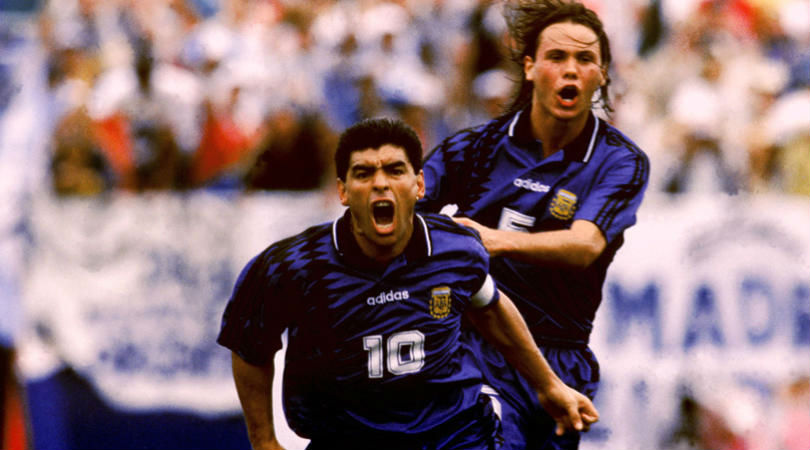
The biggest World Cup scandals
It hasn't always been plain sailing for international football's showpiece event. The alleged involvement of military juntas, fascist salutes, games that were more like MMA bouts than football matches, megastars caught doping and referees who were so pedantic that they measured time in tenths of seconds have all had an impact on the World Cup. In this slideshow, we pick out 10 of the tournament's biggest scandals.
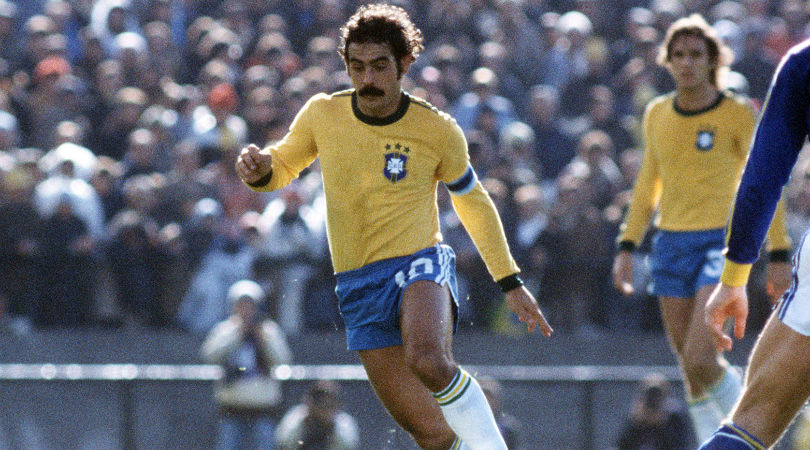
The jobsworth referee
Clive ‘The Book’ Thomas, so nicknamed for his pernickety style of refereeing, surpassed even his own high standards during the World Cup match between Brazil and Sweden in 1978. The game was level at 1-1 as the clock ticked over the 90-minute mark, with the Selecao awarded a corner as they pushed for a late winner.
Thomas allowed the kick to be taken but then blew the full-time whistle as it sailed into the box, where it was soon headed home by Zico. Brazil protested but the Welsh official was having none of it.
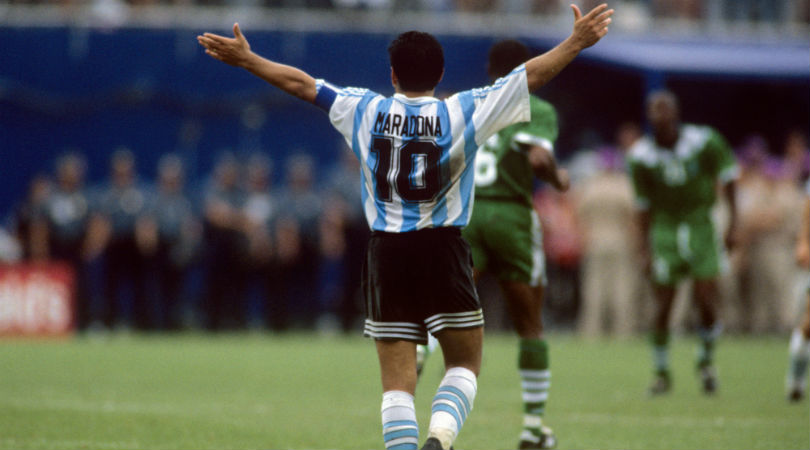
Maradona's failed drug test
Diego Maradona’s career plumbed the depths as frequently as it hit previously unscaled heights, so nobody was particularly surprised when he failed a drugs test at the 1994 World Cup – particularly after witnessing his eye-bulging celebration after netting against Greece.
Having already served a 15-month ban for using cocaine, Maradona's test results came back positive following Argentina's match against Nigeria. The forward's argument that he had ingested ephedrine unwittingly after his trainer had given him the wrong energy drink fell on deaf ears, and he was sent home in disgrace.
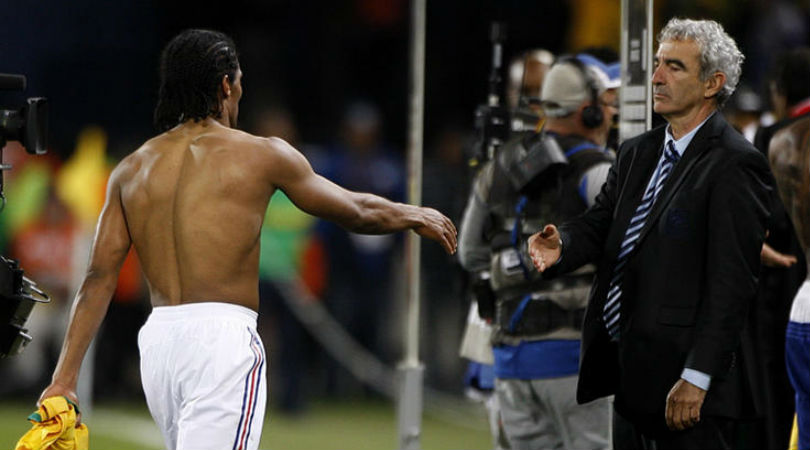
The French revolution
The very public way in which France coach Raymond Domenech fell out with his squad at South Africa 2010 was jaw-dropping. The world watched as staff and players aired their dirty laundry in public, with numerous relationships crumbled beyond repair – and all this before the tournament even started.
Florent Malouda and Domenech almost came to blows before a ball was kicked and things intensified at half-time of the match against Mexico, when Nicolas Anelka barked at his manager, “Go f*** yourself you son of a w****.” Captain Patrice Evra later led a mutiny, as the squad abandoned an open training session and instead headed for the team bus, where they hastily prepared a statement declaring their opposition to Anelka’s expulsion.
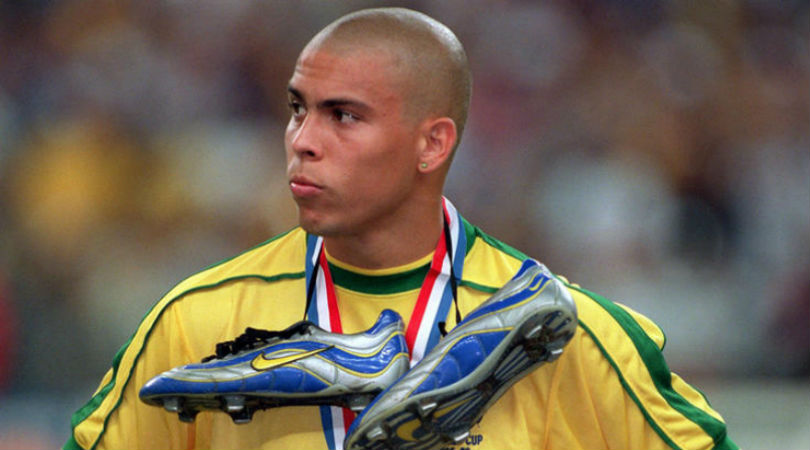
The Ronaldo mystery
Back in 1998, Ronaldo was the perfect striker: supremely quick, powerful, technically magnificent and with a voracious appetite for goals. He had scored four goals and assisted three more on the way to the final against hosts France, and was Brazil's biggest World Cup hero since Pele.
Imagine the shock, then, when Ronaldo was initially left off Brazil's team sheet for the final at the Stade de France. His name was present on a hastily reprinted second edition, but it later emerged that the striker had suffered a convulsion on the eve of the final and was in no fit state to play. Unsurprisingly, France ran out 3-0 winners.
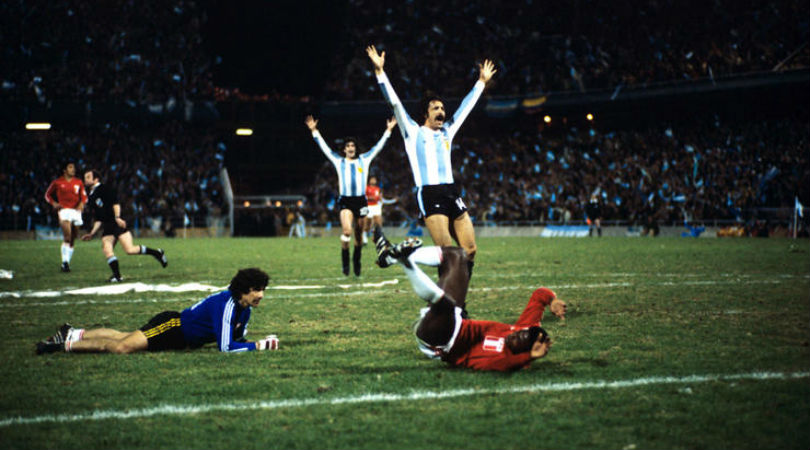
The alleged fix
Argentina hosted the 1978 World Cup while the country was ruled by a military junta following the overthrow of Isabel Peron two years previously. Heading into their final game in the second group stage, the Albiceleste needed to beat Peru by four clear goals to advance ahead of rivals Brazil.
That looked like a tall order, so the Selecao predictably cried foul play when Argentina ran out 6-0 victors. To this day, many believe the Argentine government interfered to ensure the hosts made it to the final of their own World Cup.
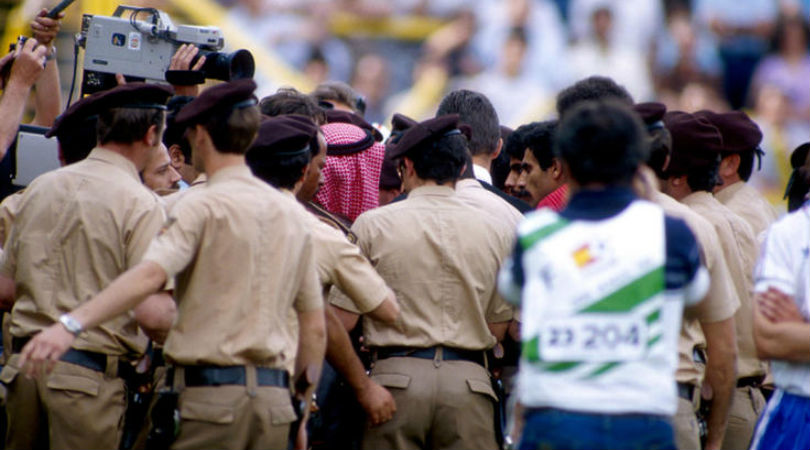
Kuwait's protest
World Cup debutants Kuwait were trailing France 3-1 in a group stage game at the 1982 tournament in Spain. Three quickly became four as Les Bleus put the match beyond doubt, but only after the Kuwaiti side had stopped in their tracks after claiming to have heard a whistle from the referee, Miroslav Stupar.
Kuwaiti Football Association president Prince Fahad was so incensed by the decision to give the goal that he left his seat and headed onto the pitch to remonstrate with the referee – who promptly changed his mind and chalked it goal off.
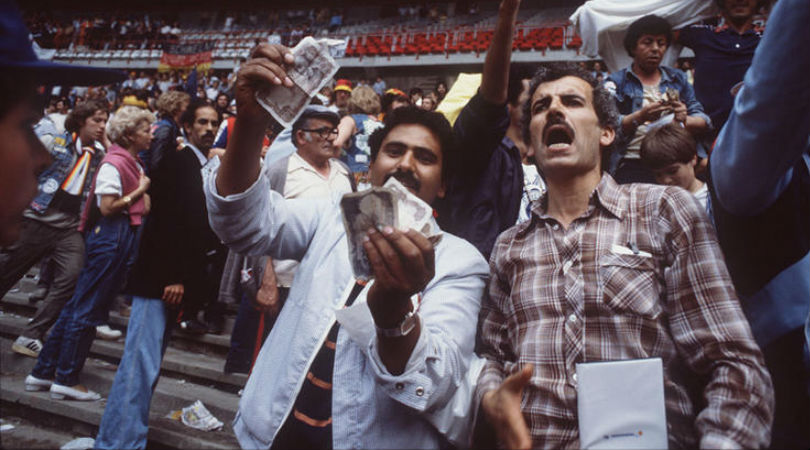
The Disgrace of Gijon
The 1982 World Cup in Spain pitted neighbours West Germany and Austria in the same group, with the two nations set to lock horns in their final game of the first round. The only result which would send both teams through at the expense of Algeria was a German win by either one or two goals – and that, believe it or not, is exactly what happened.
The Mannschaft struck early and the remaining 80 minutes were a mix of wildly inaccurate shots, tedious backpasses and aimless long balls, with neither West Germany nor Austria straining themselves in search of another goal.
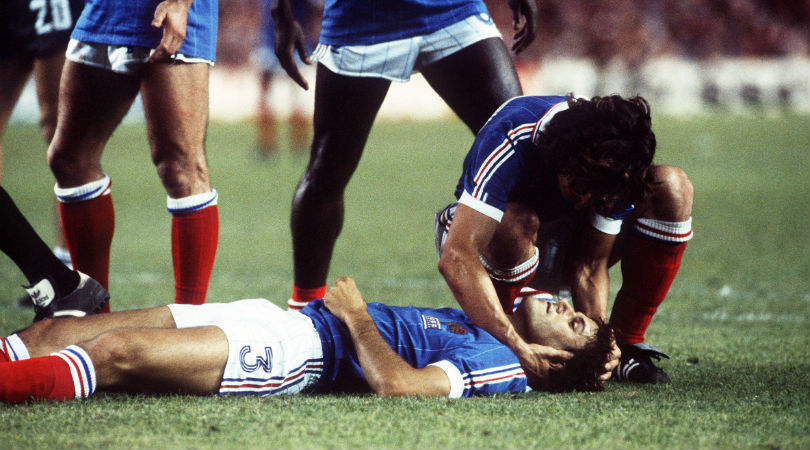
Harald Schumacher's GBH
West Germany and France played out a thrilling semi-final in 1982, with the former advancing on penalties after a 3-3 draw. The game is primarily remembered for one single incident, though: Harald Schumacher's assault on France's Patrick Battiston.
Racing onto a through-ball by Michel Platini, the defender was brutally taken out by the German goalkeeper, who came flying out of his box and crashed into his opponent without getting anywhere near the ball. Battiston was knocked unconscious and left with damaged vertebrae; Schumacher got away without so much as a free-kick being given against him.
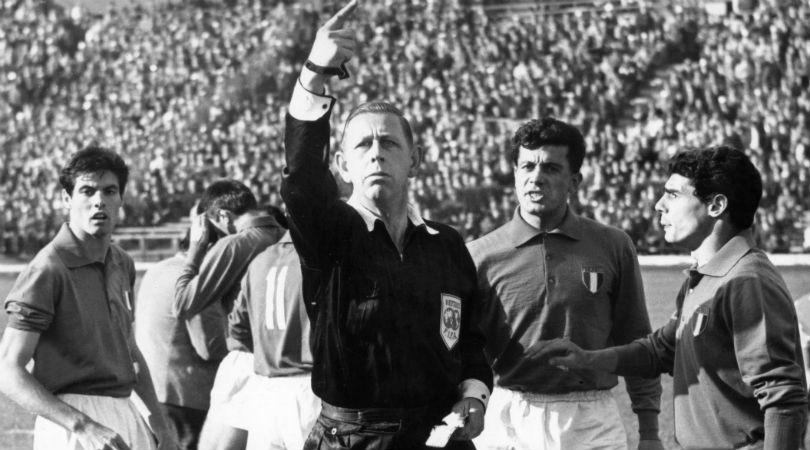
The Battle of Santiago
The first football match between Chile and Italy is one of the most famous in World Cup history. Tensions were running high before kick-off in Santiago after some unfavourable reporting by the Italian press about the host nation, whose players were determined to exact revenge on the pitch.
Only two players were sent off in a game which became known as the 'Battle of Santiago', but this was an encounter littered with violence. Chile’s Leonel Sanchez somehow managed to get away with punching Mario David in the face and breaking Humberto Maschio’s nose, while team-mate Honorino Landa also escaped punishment for using his fists. Police had to intervene on four separate occasions, including dragging dismissed Italian Giorgio Ferrini off the field.
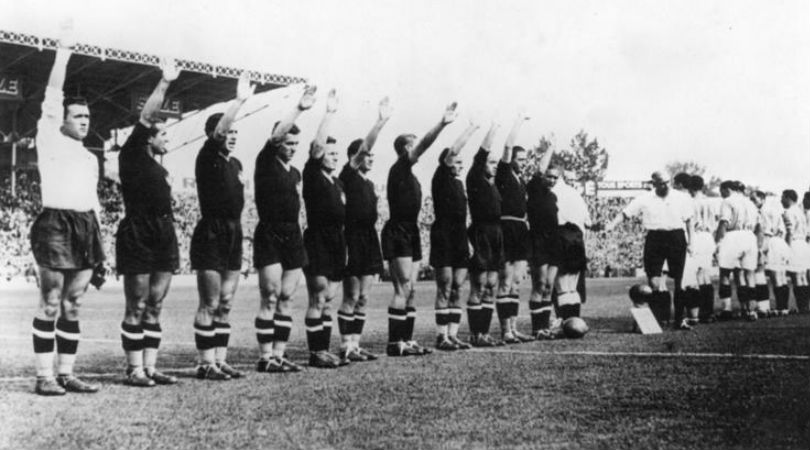
Italy's fascist salute
Italy won the World Cup in 1934 on home soil and arrived in France four years later to defend their crown. Before their quarter-final against the host nation, lots were drawn to decide which side would wear their traditional blue kit and which would have to wear a change strip.
France won, but rather than changing into their usual away colours of all-white, Italy sported a provocative all-black number after receiving direct orders from fascist dictator Benito Mussolini. As if that wasn’t bad enough, the kit came complete with Fascio Littorio emblem, while the Italians also performed a fascist salute before kick-off.
 Join The Club
Join The Club










